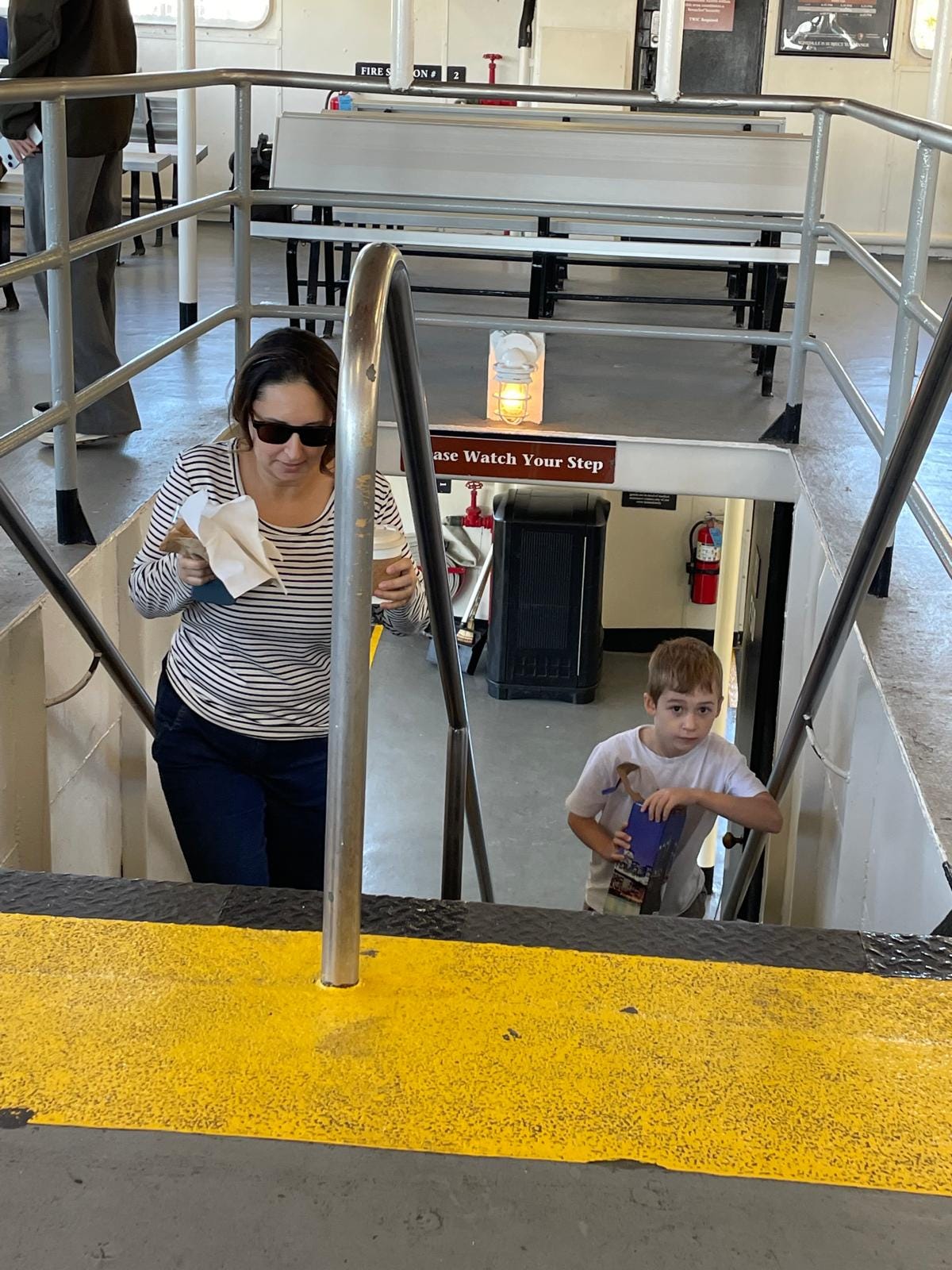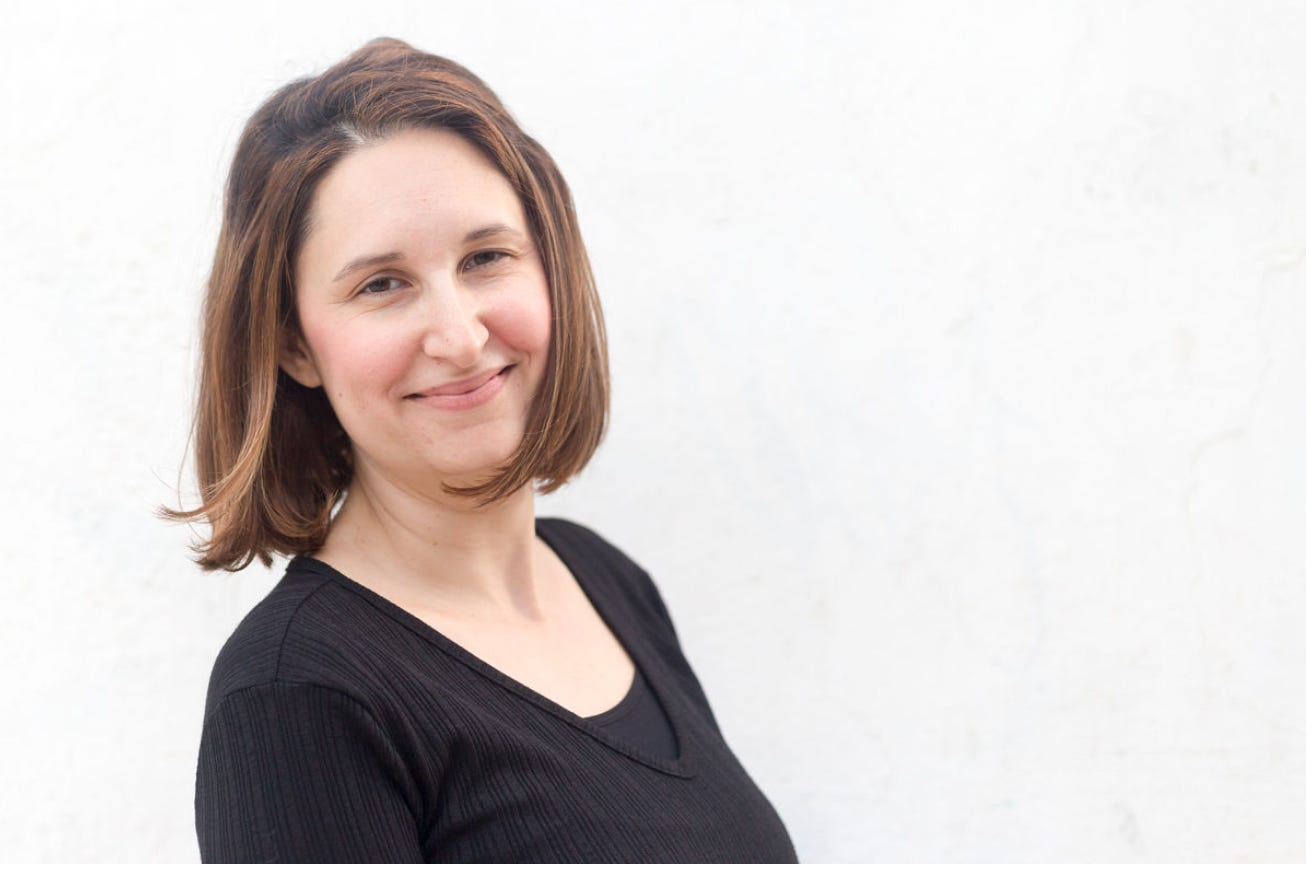“A hopeless peace.” This line ends the stunning poem below, Dara Barnat’s “One Kaddish For the World.” All of the humanity stands in this place today. This week we watched three living women come home after 471 days in captivity and hug their mothers. Four more are due to be returned on Shabbat (b'ezrat H’.) There are still 94 to go. Who will make it back? Who will come back alive? Will the process continue to go smoothly or will it be caught up in political games and power plays? We watch. We are happy and yet, and yet…this stone in our hearts…why couldn’t this have happened months and months ago? Before the killing, the death, the destruction, the maiming of so, so many people? And meanwhile, in the United States a new president commits evil acts with the swipe of his pen. Actions that will make the strong the rich more powerful and take away the rights of the poor, the weak and the displaced. Where do we put all of this fear?
Over the next six weeks, as the ceasefire (hopefully!) continues, Judith Poetry will stand in prayer with all of you for kindness to return to our world speedily and in our days. Amen.
One Kaddish for the World - Tel Aviv, November-December 2024 I. Where even to start? Maybe at five in the morning after the US election. I take out Lily, the dog. In the dark we walk, and I listen to podcasts about the end of the world. It wasn’t supposed to be this way. Right? I have a class to teach at eight-fifteen. The students look at me like I am supposed to know something, which always surprises me. I would start with a poem, a prayer, or an apology, but this class is not about poetry, religion, or politics, so we talk about styles of citation. On the way to campus, I drop off our son, who in his seven years has lived through too much darkness. His Hebrew is far better than mine, so there is no language to speak to protect him. He understands when I am upset – when it’s hard to be a parent in a country in a war, which is also a country that is only partly my own. He is allergic to mosquito bites, and once, during an allergy test, said to me, You can be brave too, Mama. Yes, my son. I will try. I do try. Sometimes, I feel like I succeed, but too often I feel like I let the world weigh too heavily on me, which causes the world to weigh too heavily on him. Forgive me. I will try to be stronger. II. Breakfast has to be made. Lunch, dinner. With the US election, exactly what I feared has happened. What great hope so many of us held onto. My list of griefs grows ever longer. My father, my grandmother. In this country. In that country. In the kitchen, the Mourner’s Kaddish comes to mind – Yitgadal v’yitkadash sh’mei raba b’alma di v’ra chir’itei. The list grows ever longer, since the election is far from the worst this year. If only I could rewind to before the 7th of October. Before before before. Rewind the government, rewind whoever wasn’t paying enough attention to what was going on for so long. I would rewind all the bombing, every death, every moment of suffering. But the days, they refuse to go backwards. We are at some hundreds of them in this war, and so, so many before that. It’s impossible to count. Our son has math homework, he needs a new backpack and shoes. Go shopping. Keep the house organized for war, so just in case, buy flashlights. I know full well that in this we are the lucky ones. III. Sometimes I read poems that offer brief solace. But even poems, for the first time in my life, are not enough. Even Walt Whitman, my Walt Whitman, is not quite enough, even the poem that Ed read from that time from afar, In the freshness the forenoon air, in the far-stretching circuits and vistas again to peace restored. Such a beautiful line from “To the Leaven’d Soil They Trod,” yet peace is so far from restored. The faces of the hostages are up, always up near the supermarkets. The war keeps getting worse. Every time you think it can’t, it does. About that everyone seems to agree. Hersh, Ori, Eden, Almog, Alexander, Carmel – you have no idea how hard I prayed for you to come home. The day we heard it was the height of summer. Remember how it rained as if the sky, too, was suffering? The sky must know that we are all suffering. Suffering only leads to suffering. War only leads to war. I know this. I continue with the Kaddish – v’yamlich malchutei b’hayeichon u-v’yomeichon, uv’hayei d’chol beit yisrael. Every chance I get, I vote against the right-wing government. In the two countries in which I am allowed, I vote and vote. IV. My life: split down the middle between here and there, somehow never anywhere. I vote. I protest, as do many. Thousands. Hundreds of thousands, flooding the streets. There seem to be too many who want war. My son – I try to reassure him. We will be okay. Put your seatbelt on. We’re driving to school. I drive and continue to say the Kaddish in my mind, like when I was a little girl in synagogue, in a Friday night service in that small temple, next to my father before he too left the world – ba-agala u-vi-z’man kariv, v’imru amen. May this Kaddish somehow evoke a hopeless peace.
Dara Barnat is a scholar of poetry, a poet, and a lecturer in poetry, creative writing, and academic writing. She holds a Ph.D. from Tel Aviv University, where she is a senior faculty member and presently serves as Head of the Division of Languages. Her scholarly book – Walt Whitman and the Making of Jewish American Poetry – was published in 2023 by the University of Iowa Press (Iowa Whitman Series). Critical essays on poetry appear or are forthcoming in the Walt Whitman Quarterly Review, Los Angeles Review of Books, The Oxford Handbook of Walt Whitman, and elsewhere. Dara is the author of three poetry collections: The City I Run From: Poems of Tel Aviv (2020), In the Absence (2016), and Headwind Migration (2009). Other poems and translations from Hebrew have appeared in The Cortland Review, diode, Poet Lore, Crab Orchard Review, and elsewhere. Her poetry has been translated into Hebrew, French, and Romanian.

Delights!
Five Tiny Delights
Conversations with my son;
Reading Whitman’s “Song of Myself” (any edition);
Listening to the Canadian band Walk off the Earth;
Chats with students;
The view all the way to the sea from the Tel Aviv University campus
Five Tiny Jewish Delights
Hosting every night during Hanukkah;
Lighting my grandmother’s menorah (may her memory be a blessing);
Learning how to make latkes;
Reading Jewish activist poets, like Muriel Rukeyser;
The calm of Shabbat






This poem is a perfect expression of our lives these days. Kudos Dara Barnat!
Stunning work. Thank you once again for sharing work that puts words to the unspeakable inside us.